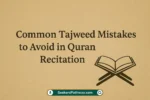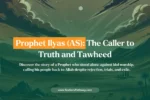There are many myths and questions around the month of Safar, one of which is whether or not fasting in Safar is makruh (disliked). Some individuals shy away from fasting in Safar because of the dread of not realizing doing something religiously abominable.
Where Does the Confusion Come From?
A great deal of controversy arises from cultural superstitions, particularly within South Asian and some Arab communities. “Safar” is known to be a “bad luck” month. Some went to the extent of abstaining from supererogatory acts of worship such as fasting, thinking that it would draw them closer to wrong beliefs or stories of jinn.
Others believe that fasting on these particular days could be a form of bid’ah or even makruh because there is no clear sunnah regarding those who fast.

What the Scholars Say?
The majority of Islamic scholars, in the four major Sunni madhahib (Hanafi, Maliki, Shafi’i, and Hanbali), concur on a fundamental number:
It’s not like there’s a month that is always bad or not for worship, not even Safar.
There is no such Sahih Hadith or Ijma that declares any day of Safar as makruh as far as fasting is concerned.
- Voluntary fasts, the Monday and Thursday fast, and White Days (13th, 14th, and 15th of the lunar month) are highly recommended throughout the year, including Safar.
- Singling out Friday for fasting without fasting a day before and after it.
- Fasting without breaks in between, every day of the year (the Prophet ﷺ discouraged from this).
- To fast on Eid and the three days after (Tashreeq) (Not simply makruh but haraam).
Therefore, fasting in Safar is not makruh until it falls into one of the mentioned criteria unconnected to the month itself.
Fiqh Clarification: Avoiding Innovation
Some of the scholars do warn against particularly fasting certain days of Safar, which some people may think is more virtuous or deserves more protection. Then this is going to be something that will lead to bid’ah if this act is not supported by a proof that it is, in fact, virtuous.
So as far as fasting in Safar, it’s not something that’s disliked, but making up dates and giving them special meaning or significance based on nothing from the religion can be problematic.
Conclusion
The month of Safar is not a cursed month or a spiritually bad month. Fasting in Safar is not makruh in general, unless it falls into those methods that are contrary to the Sunna. You will be Muslims secure in the knowledge that you perform all acts of worship in this month correctly, as you see, so also with respect to fasting.
“There is no ‘Safar’ (no bad omen in the month of Safar).”
Sahih Bukhari & Sahih Muslim
Islam encourages us to shed superstition and embrace knowledge grounded in the Qur’an and Sunnah.










